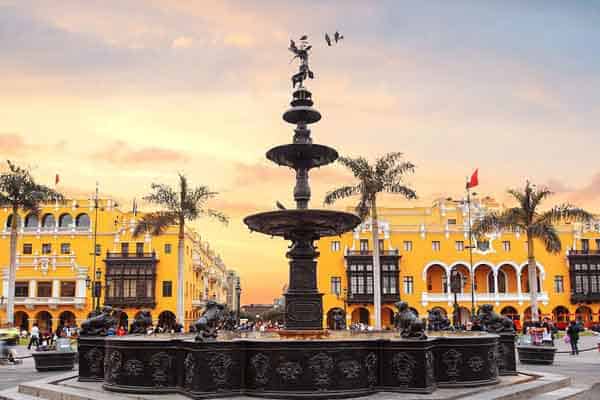Joining Argentina and Uruguay, Peru has leaped toward potentially providing a hospitable environment for online operators.
Percy Eloy Alcala Mateo, a Peruvian legislator from the Fuerza Popular Party has introduced Bill 3397/2018-CE to the Congressional floor in an attempt to legalize and regulate online gambling operators and rid of all black-market sites. While the bill needs approval from Congress and sitting President Martín Vizcarra, the bill has received unanimous support by both political parties. If the bill keeps its current pace and approval, it could become law in less than 2-months’ time.
With the intention to legalize online sportsbooks and casino sites, Bill 3397 would allow Peruvian residents to benefit from government taxed revenue generated by these sites operating in and/or serving the region. The bill would also clarify legalities in jurisdiction, online operations, and the taxation of the services given. The bill clearly stipulated a 12% monthly tax on online gambling revenue and requires operators to front a $166,210 guarantee to cover immediate payouts and potential penalty costs.
In Peru, gambling has always been popular. While online sportsbooks are strictly illegal they are commonly available in this South American country. In fact, illegal offshore operators generate substantial profits from selling casino gambling and sports wagering services to Peruvians.
The Peruvian Government intends to better control the online gambling market by regulating operators and fully capitalizing on the revenue generated by online operators through taxation. The tax structure for online gambling reflects Peru’s current monthly revenue taxes for casinos and lotteries.
One General Manager for a local sportsbook, Luis Felipe Cornejo, had some input on the tax and guarantee stipulation. Cornejo implied the 12% monthly tax would affect player prices on their platform and others. The GM even speculated a potential issue of players seeking better prices and edges and thus returning to illegal online operators.
Without voluntary price increases for local unlicensed sportsbooks, most would close due to increased expenses in the form of a newly implemented government tax. While these concerns are valid, multiple competitive online operators are willing to invest in the country and offer their services. These more competitive and higher scaled platforms could meet the demand for Peru’s new legal market while offering competitively low prices, appealing to a wider spectrum of bankroll sized customers.
Local sportsbooks, like Cornejo’s, still wish to negotiate with the Peruvian Government to lower high guarantee upfront cost and what they claim as detrimentally high taxes. Cornejo and others are not ready to walk away from efforts to push online gambling legalization, rather they want to alleviate new costs. Cornejo has asked the government to reduce their guarantee to one-third of their asking price to further move negations.

